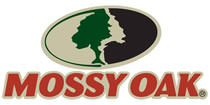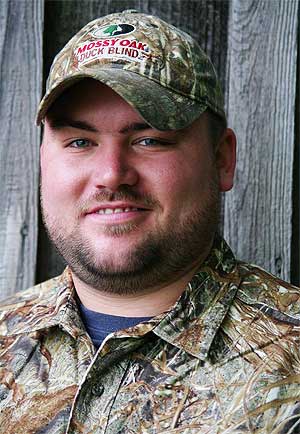Waterfowl Hunting Interview with Mossy Oak Pro Staff Member Cory Dukehart

WEST POINT, MS –-(Ammoland.com)- Q: What is a good call for beginners?
A: For ducks, I typically recommend double reed calls. The double reed duck call is what I call the training wheels of duck calls. Now this doesn’t mean that a veteran should not blow a double reed, but they are easier to learn on in my opinion. The double reed allows the caller to lean on the call more and give it more air without the fear of slipping a bad or scratch note.
For geese, I would start out with and continue to use short reeds. There are a few manufacturers out there who make great flute style calls, and in the right hands they can be deadly. But in my opinion the easier style to learn and continue to progress on is the short reed style goose call.
Q: How can I learn how and when to call?
A: Learning how to call is a lot easier than learning when to call. To learn how to call takes nothing but practice and lots of it. These days there are endless websites with calling instructions and online lessons. There is also an abundance of calling instructional DVDs/CDs on the market. If you do not have someone who you can practice with to help you correct bad habits, I would recommend purchasing one of these DVDs or CDs and listening to the sounds that the caller is making. If you have access to a local refuge or park, it doesn’t hurt to go and listen to the best teachers of all, the birds themselves.
Learning when to call is a completely different story. And no one can really teach it to you. The only way to learn when to call takes time in the field watching the birds.

Q: What is the best way to set up if I only have a limited number of decoys?
A: Having a limited amount of decoys to use is not always a bad thing depending where you are in the country and the time of the year you are hunting them. One of the best ways to use a smaller amount of decoys is in the early season. I would set them up in small family groups, 3 or 4 birds per group, and then about 10-15 yards away another small family group.
Q: What is your favorite way to hunt ducks?
A: My favorite way to hunt ducks is in a field from a lay down blind. There is nothing like working in a group of about 20 mallards and having them practically land right on top of you before you call the shot.
Q: What do you do if ducks or geese are “short stopping” your decoy spread?
A: One thing to do is to jump on your call really hard and fast. Get really excited on the call. This doesn’t always work, but I have had success with it in the past. Typically it will pick the birds back up and allow them to drift the few extra yards you need to make the shot. The key to this is to make sure you do it before they actually land. If you see the birds about to set down on the edge of your spread outside of gun range, make sure you hit them with the call then before they get on the ground. Once they are on the ground, there is not a whole lot you can do to get them closer.
Q: What is the best call to use for pressured or “call shy” ducks?
A: I don’t know there really is a good call for “call shy” ducks. If you have to blow a call make sure it’s a quiet one and use it very sporadically. I would try to stick with slow, relaxed sounds, single quacks, pecking and clucking. If the ducks are call shy and everyone hunting around you is calling a lot, your best move might just be to shut up and see what they do with silence. They might just come right to you.
About:
The Mossy Oak ProStaff is a group of top outdoors men and women from across the country that act as spokespersons for the Brand. Members of the Elite ProStaff are people the hunting community will recognize from their hunting expertise and accomplishments, videos, TV and magazine articles. Our Regional ProStaff is a group of accomplished hunters who promote Mossy Oak in various regions across the U.S. They also manage a more localized Field Staff in their regions. From event support to retail store grand openings to radio and TV appearances, our ProStaff adds value to the Mossy Oak Brand nationally, regionally and locally.
